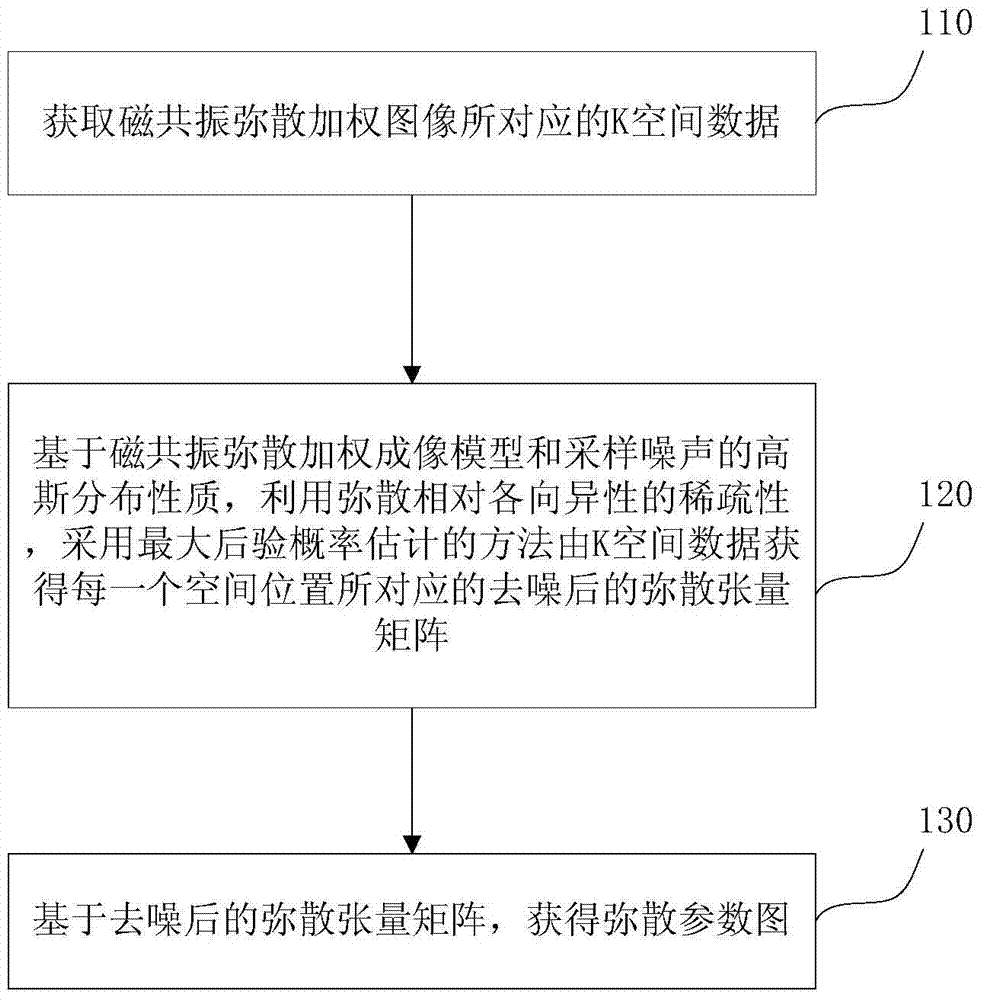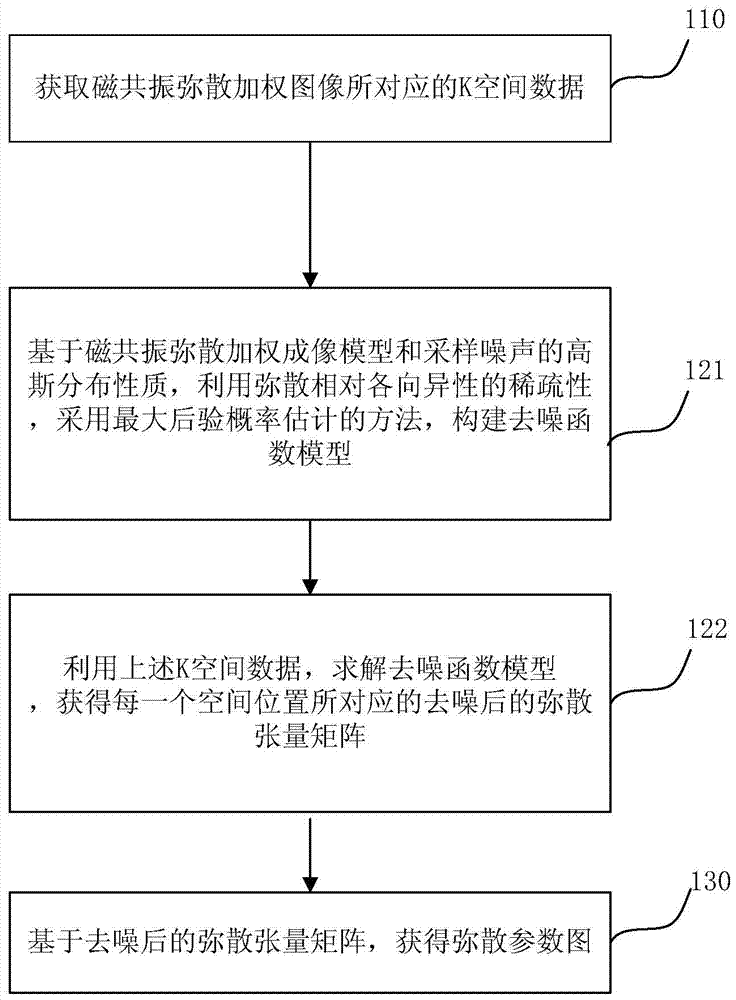Magnetic resonance diffusion tensor denoising method and system
A technology of diffusion tensor and magnetic resonance, applied in diagnostic recording/measurement, image data processing, medical science, etc., can solve problems affecting the image quality of diffusion parameters, achieve the effect of suppressing noise and improving estimation accuracy
- Summary
- Abstract
- Description
- Claims
- Application Information
AI Technical Summary
Problems solved by technology
Method used
Image
Examples
Embodiment Construction
[0031] The present invention is based on the magnetic resonance diffusion weighted imaging technology, utilizes the inherent characteristics (such as sparsity) of the diffusion tensor model and the relative anisotropy of the diffusion, and based on the theoretical framework of maximum a posteriori probability estimation, directly acquires denoising from the collected K-space data The final diffusion tensor is used to realize magnetic resonance diffusion tensor imaging. The MRI diffusion tensor imaging mentioned here is a new method different from the diffusion weighted imaging, which can be used to describe the brain structure. For example, if an MRI tracks hydrogen atoms in water molecules, then diffusion tensor imaging maps the direction in which water molecules move, and a diffusion tensor image (presented differently than previous images) can reveal brain tumors How to affect nerve cell connections, guiding medical personnel to perform brain surgery. It can also reveal su...
PUM
 Login to View More
Login to View More Abstract
Description
Claims
Application Information
 Login to View More
Login to View More - R&D
- Intellectual Property
- Life Sciences
- Materials
- Tech Scout
- Unparalleled Data Quality
- Higher Quality Content
- 60% Fewer Hallucinations
Browse by: Latest US Patents, China's latest patents, Technical Efficacy Thesaurus, Application Domain, Technology Topic, Popular Technical Reports.
© 2025 PatSnap. All rights reserved.Legal|Privacy policy|Modern Slavery Act Transparency Statement|Sitemap|About US| Contact US: help@patsnap.com



